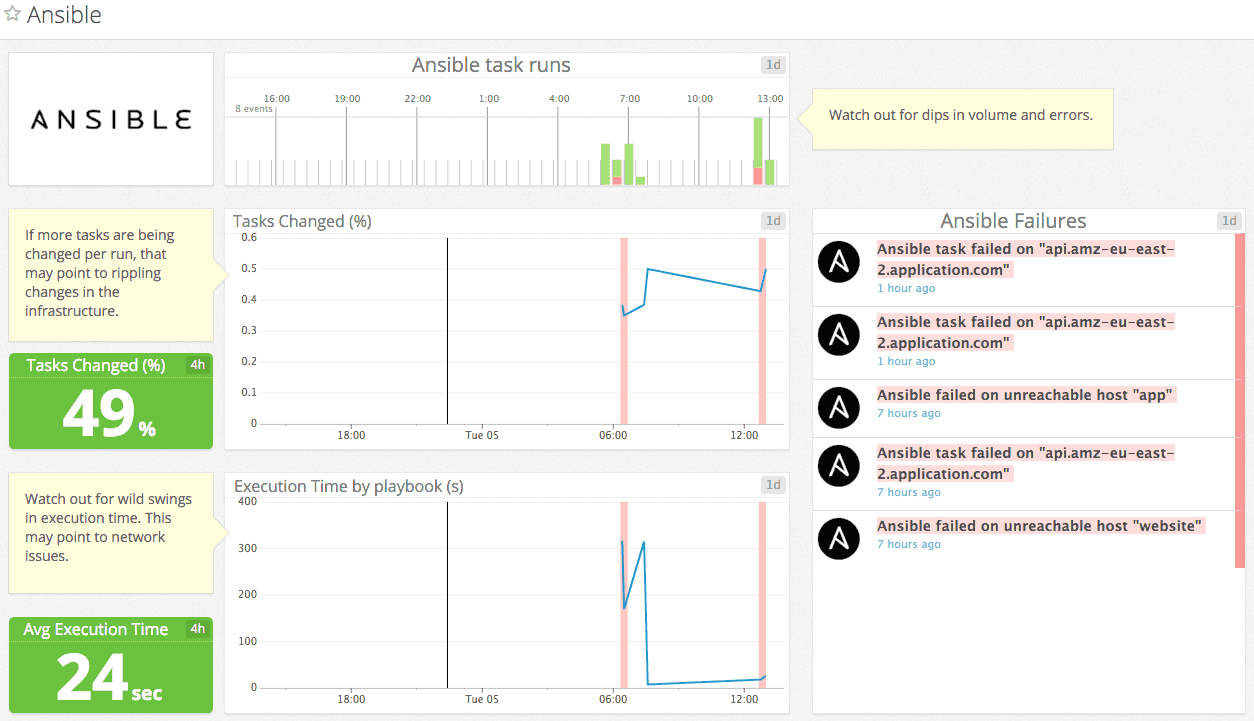- Essentials
- Getting Started
- Agent
- API
- APM Tracing
- Containers
- Dashboards
- Database Monitoring
- Datadog
- Datadog Site
- DevSecOps
- Incident Management
- Integrations
- Internal Developer Portal
- Logs
- Monitors
- OpenTelemetry
- Profiler
- Session Replay
- Security
- Serverless for AWS Lambda
- Software Delivery
- Synthetic Monitoring and Testing
- Tags
- Workflow Automation
- Learning Center
- Support
- Glossary
- Standard Attributes
- Guides
- Agent
- Integrations
- Developers
- Authorization
- DogStatsD
- Custom Checks
- Integrations
- Create an Agent-based Integration
- Create an API Integration
- Create a Log Pipeline
- Integration Assets Reference
- Build a Marketplace Offering
- Create a Tile
- Create an Integration Dashboard
- Create a Monitor Template
- Create a Cloud SIEM Detection Rule
- OAuth for Integrations
- Install Agent Integration Developer Tool
- Service Checks
- IDE Plugins
- Community
- Guides
- OpenTelemetry
- Administrator's Guide
- API
- Partners
- Datadog Mobile App
- DDSQL Reference
- CoScreen
- CoTerm
- Cloudcraft (Standalone)
- In The App
- Dashboards
- Notebooks
- DDSQL Editor
- Reference Tables
- Sheets
- Monitors and Alerting
- Metrics
- Watchdog
- Bits AI
- Internal Developer Portal
- Error Tracking
- Change Tracking
- Service Management
- Actions & Remediations
- Infrastructure
- Cloudcraft
- Resource Catalog
- Universal Service Monitoring
- Hosts
- Containers
- Processes
- Serverless
- Network Monitoring
- Cloud Cost
- Application Performance
- APM
- APM Terms and Concepts
- Application Instrumentation
- APM Metrics Collection
- Trace Pipeline Configuration
- Correlate Traces with Other Telemetry
- Trace Explorer
- Recommendations
- Code Origins for Spans
- Service Observability
- Endpoint Observability
- Dynamic Instrumentation
- Live Debugger
- Error Tracking
- Data Security
- Guides
- Troubleshooting
- Continuous Profiler
- Database Monitoring
- Agent Integration Overhead
- Setup Architectures
- Setting Up Postgres
- Setting Up MySQL
- Setting Up SQL Server
- Setting Up Oracle
- Setting Up Amazon DocumentDB
- Setting Up MongoDB
- Connecting DBM and Traces
- Data Collected
- Exploring Database Hosts
- Exploring Query Metrics
- Exploring Query Samples
- Exploring Database Schemas
- Exploring Recommendations
- Troubleshooting
- Guides
- Data Streams Monitoring
- Data Jobs Monitoring
- Data Observability
- Digital Experience
- Real User Monitoring
- Synthetic Testing and Monitoring
- Continuous Testing
- Product Analytics
- Software Delivery
- CI Visibility
- CD Visibility
- Deployment Gates
- Test Optimization
- Quality Gates
- DORA Metrics
- Security
- Security Overview
- Cloud SIEM
- Code Security
- Cloud Security
- App and API Protection
- Workload Protection
- Sensitive Data Scanner
- AI Observability
- Log Management
- Observability Pipelines
- Log Management
- Administration
Ansible
Overview
Install the Datadog Ansible callback integration to:
- Get real-time reports on Ansible server runs
- Track key Ansible performance metrics across all your servers
- Quickly identify and discuss failed Ansible runs with your team
For more information about using Datadog integrations with Ansible, read the blog post Ansible + Datadog: Monitor your automation, automate your monitoring.
Setup
Installation
Ensure the prerequisite Python libraries are installed on the server:
- datadogpy
- pyyaml (install with
pip install pyyaml) - For Mac OS X users: If you’re running OS-installed Python 2.7.10 or below, upgrade to a newer version of OpenSSL -
pip install pyopenssl idna
Clone the ansible-datadog-callback GitHub repo.
Copy
datadog_callback.pyto your playbook callback directory (by default callback_plugins/ in your playbook’s root directory). Create the directory if it doesn’t exist.Create a
datadog_callback.ymlfile alongsidedatadog_callback.py, and set its contents with your API key, as following:api_key: <YOUR_DATADOG_API_KEY>Ansible events and metrics appear in Datadog after your playbook is run.
To install the Datadog Agent using Ansible, see the Agent Installation Instructions.
Log collection
See the playbook example to learn how to install the Datadog Agent with log collection enabled using Ansible.
Data Collected
Metrics
| ansible.elapsed_time (gauge) | Time taken to execute a playbook Shown as second |
| ansible.task.ok (gauge) | Number of tasks that did not require any change Shown as task |
| ansible.task.failures (gauge) | Number of tasks that failed Shown as task |
| ansible.task.skipped (gauge) | Number of tasks that got skipped Shown as task |
| ansible.task.unreachable (gauge) | Number of tasks for which nodes were unreachable Shown as task |
| ansible.task.changed (gauge) | Number of tasks that successfully applied changes Shown as task |
Events
The ansible-datadog-callback captures Ansible events from your playbook runs.
Service Checks
The Ansible integration does not include any service checks.
Troubleshooting
Need help? Contact Datadog support.

